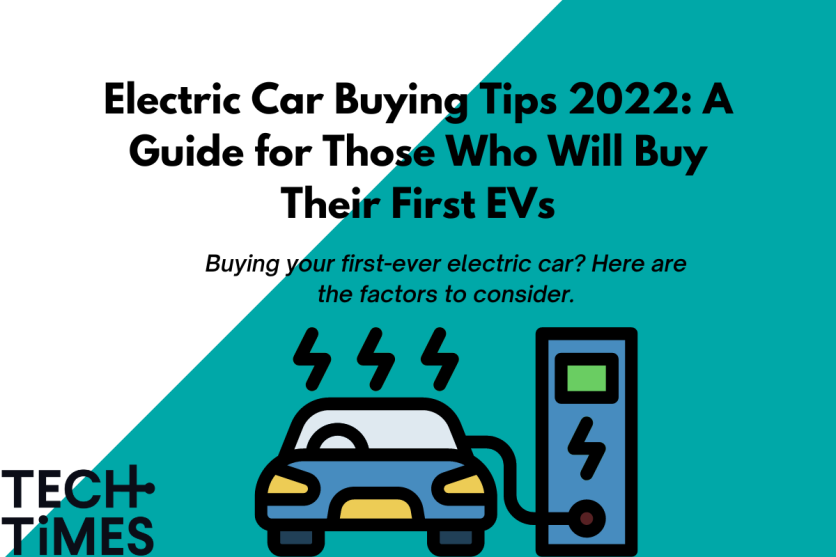At long last, you're making one of the very few first steps toward joining the zero-emissions movement amid the gas price hikes. Buying your first electric vehicle (EV) starts a thrilling new journey.
Unlike conventional gas-powered vehicles, electric ones offer a more enjoyable ride. Fast and responsive torque gives you a real sense of power. EVs are also quieter and provide a smoother ride due to the absence of an internal combustion engine and lesser moving parts.
Now, before you go out and purchase your first EV, it is paramount that you understand a few fundamentals.

Price Value and Rebate
The Inflation Reduction Act makes financial incentives available for purchasing electric cars. New EVs get a maximum $7,500 tax credit, while used EVs receive a maximum of $4,000.
However, stringent battery sourcing and assembly standards must be met for an EV to qualify. Here's a rundown of the electric vehicles that qualify for the rebate.
- Chevy Bolt EV and Bolt EUV
- Ford F-150 Lightning
- Ford Mustang Mach-E
- Nissan Leaf
- Tesla Model 3
- Tesla Model Y
According to Electrek, in September, the average price of an electric car was a little over $65,000. Nevertheless, some EVs are cheaper, including:
- 2023 Chevy Bolt EV with a starting price of $25,600
- 2023 Chevy Bolt EUV with a starting price of $27,200
- 2023 Nissan Leaf with a starting price of $28,040
- 2023 Hyundai Kona Electric with a starting price of $33,550
- 2023 Volkswagen ID.4 with a starting price of $37,495
Driving Range
The range of the vehicle on a single charge is another major factor to consider while looking for your first electric car. Drivers place a high premium on the range. Take into account the distance you drive to and from work each day. And, do you travel a lot, even just for leisure?
Try considering these EVs that provide the longest range. Check out Lucid Air Dream Edition, Tesla Model S, Tesla Model 3 Long Range, Mercedes Benz EQS, Tesla Model X, and Tesla Model Y. Depending on the model and the maker, these cars' price varies from $62,000 to $169,000.
Vehicle Type and Design
If you are spending a lot of money on this decision and a lot of time behind the wheel, you may as well enjoy the experience of driving that car.
Don't also forget to consider who will use it. Will it be a family car? If so, for how many members?
Switching to electric automobiles does not mean giving up your wants and needs. The auto industry has responded to the needs of all types of drivers by releasing EVs in every market segment.
- Sedan - Tesla Model 3
- Compact / Crossover - Kia EV6, Tesla Model Y, Hyundai Kona EV, Chevy Bolt EV, Chevy Bolt EUV, Ford Mustang Mach-E, Polestar 2, and Volvo C40
- SUV - Hyundai IONIQ 5, Volkswagen ID.4, Rivian R1S, Jaguar I-Pace, Chevrolet Blazer EV, Audi e-tron, Kia Niro EV, and Mercedes EQS
- Truck - Ford F-150 Lightning, GMC Hummer EV, and Rivian R1T
- Luxury - Tesla Model and Lucid Air
Charging Accessibility and Speed
Your EV must always be charged and ready to go. You must have a charging station at home, where you usually park since about 80% of charging occurs in the house.
Consider charging speed. Most new EVs will use level 1 chargers, the slowest 120-volt equipment that sets the car in 10+ hours. Upgrade to a level 2 charger with 240-volt electricity if possible. Level 2 can completely charge a vehicle in 3-8 hours.
If you are renting your home, ask the management about EV charging installation, as it makes a good investment, too. If not allowed, you have several public options. Tesla is constructing a Supercharging network so drivers can travel anywhere. Federal money is supporting the nationwide EV charging network.
ChargePoint and EVgo provide public and private chargers, as well.
Most electric cars employ the newest connected technology to tell you when and where to charge so you can calculate your range.
Related Article : Electric Cars Are Indeed Slowing Down Climate Change, But More Effort Is Needed--Scientists
This article is owned by Tech Times
Written by Trisha Kae Andrada
ⓒ 2025 TECHTIMES.com All rights reserved. Do not reproduce without permission.




